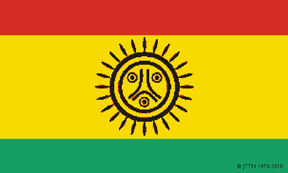The quotes I chose were in an effort to illustrate my journey in this class and all which I’ve learned.
I have never take a feminist class before, let alone take two in the same semester, but under the guidance of Dr. Pabón, I decided to give it a shot.
I’ve learned so much this semester and all of it important in the knowledge base needed to take actions to change the world. At first, I really had difficulties understanding the readings, probably because it was my first time being exposed to feminism. However, reading Marío Lugones’ “Towards A Decolonial Feminism” I read the first of my quotes and it really kickstarted my understanding.
That quote broke down, into a bite-size pieces, what it meant to be fighting for decolonization and what we must do to fight it.
María Lugones made a point when talking about oppression and that we would not feel it if we were not resisting it so hard. That was really another important perspective because It made me realize that if you were unaware of the oppression others face how could we ever help them resist? I thought that was very important because its a call for those who are not constantly affected by these discriminations to keep an eye out for them and try to make a change.
Then I began to read Allison Weir and learn about the knowledge that had been lost over the years due to this colonialism. A terrible action, all because the colonizers devalue everything that is not there’s. Then I imagine what the world would be like if we did know what they knew and how it could better us all as a society. Planting a seed of change in my mind.
Flash forward and we begin talking about Puerto Rico and how the U.S. continues to ruin the archipelago. What have they done under the mask of “goodwill and good intentions”. I enjoyed reading the writings of Morales, Power, Suarez Findley, and …too because it really tied it all together form me, from the beginnings of class to now I began to really see the colonialism and follow its prosses throughout Puerto Rico. Seeing the devastation it left behind and the accountability it does not take is really heartbreaking. Yet, reading about these activists that took stands to fight for Puerto Rico showed me that change is possible. It’s just a matter of picking up your guns and walking into congress (whether that be metaphorical or not).
Learning all of which I’ve learned in class makes me want to learn more, and fight harder for the equality we need. To fight for the understanding which we all look for in our lives, and return the value stolen from those who have been oppressed. We can all do this, but the beauty of fighting in the resistance is the many ways in which we can resist. That’s why the last quote, although out of context, really gets to me, because we can take what we have and imagine and wonder a world in which we better it.
Tieing this back into the beginning when I had first started with such a lack of understanding, I know realize that feminism and the decolonization practices are much more than learning. They are doing, whether it be little things or big things, but doing the most to try and combat the white hetero cis capitalistic caste system implemented by the colonizers. Although it will be a long road to pave it’ll get paved with the millions of actions taken by each one of us each day.

